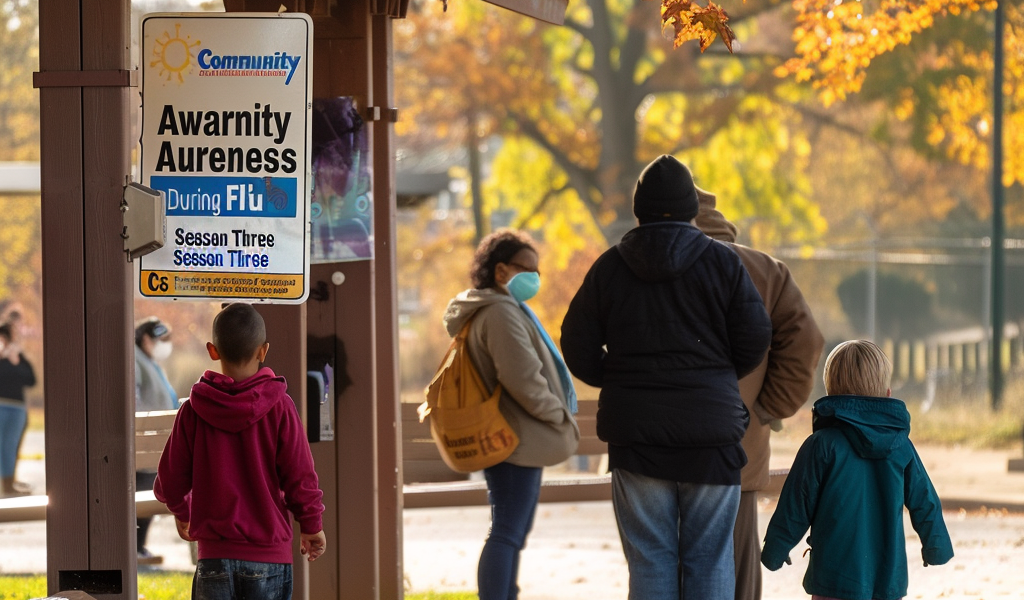As the flu season unfolds in Indiana, the Indiana Department of Health has reported the first flu-related death for the 2024-2025 season, prompting health officials to urge residents to take necessary precautions to safeguard their health. Due to privacy regulations, specific details about the deceased individual have not been disclosed.
The flu season in Indiana typically spans from October through May, during which time numerous residents contract the influenza virus, with some cases resulting in severe complications or fatalities. Last season, over 270 individuals in Indiana lost their lives due to flu-related complications.
State Health Commissioner Dr. Lindsay Weaver emphasized the importance of maintaining healthy habits during this respiratory illness season. “Practicing frequent and thorough handwashing, avoiding contact with one’s face, and staying home when feeling unwell are crucial steps in preventing the spread of the flu. This virus can escalate quickly into a serious and potentially life-threatening condition for some individuals,” she stated.
The Centers for Disease Control and Prevention (CDC) recommends that everyone aged six months and older receive an annual flu vaccine. These vaccines are both safe and effective in reducing the risk of severe illness from the flu. Health experts advise getting vaccinated early, as it typically takes about two weeks for the body to develop antibodies that offer protection against the virus. With the holiday season approaching and families gathering indoors, timely vaccination becomes even more critical.
To further combat the spread of the flu, health officials advocate for the “Three Cs” approach:
- Clean: Wash hands thoroughly with warm, soapy water.
- Cover: Use your arm or a disposable tissue to cover your mouth and nose when coughing or sneezing.
- Contain: Stay at home from work or school when feeling sick to minimize the spread of germs.
While anyone can contract the flu, certain groups are at a heightened risk for serious complications, including pneumonia, hospitalization, and death. Pregnant women, young children (especially those not yet eligible for vaccination), individuals with compromised immune systems or chronic health conditions, and older adults are particularly vulnerable. Annual flu vaccinations are especially crucial for these populations.
Common symptoms of the flu include:
- Fever of 100° Fahrenheit or higher
- Cough
- Sore throat
- Headache
- Fatigue
- Muscle aches
- Runny or stuffy nose
The Indiana Department of Health provides weekly updates on flu season data through its influenza dashboard, which is refreshed every Friday (with updates on Monday, December 2, due to the holiday). This dashboard also features historical flu surveillance data categorized by county, region, and age group.
For more information on influenza and to access the CDC’s weekly flu reports, residents can visit the Indiana Department of Health’s official website. Additionally, updates and health tips can be followed on social media platforms, including X and Facebook.





